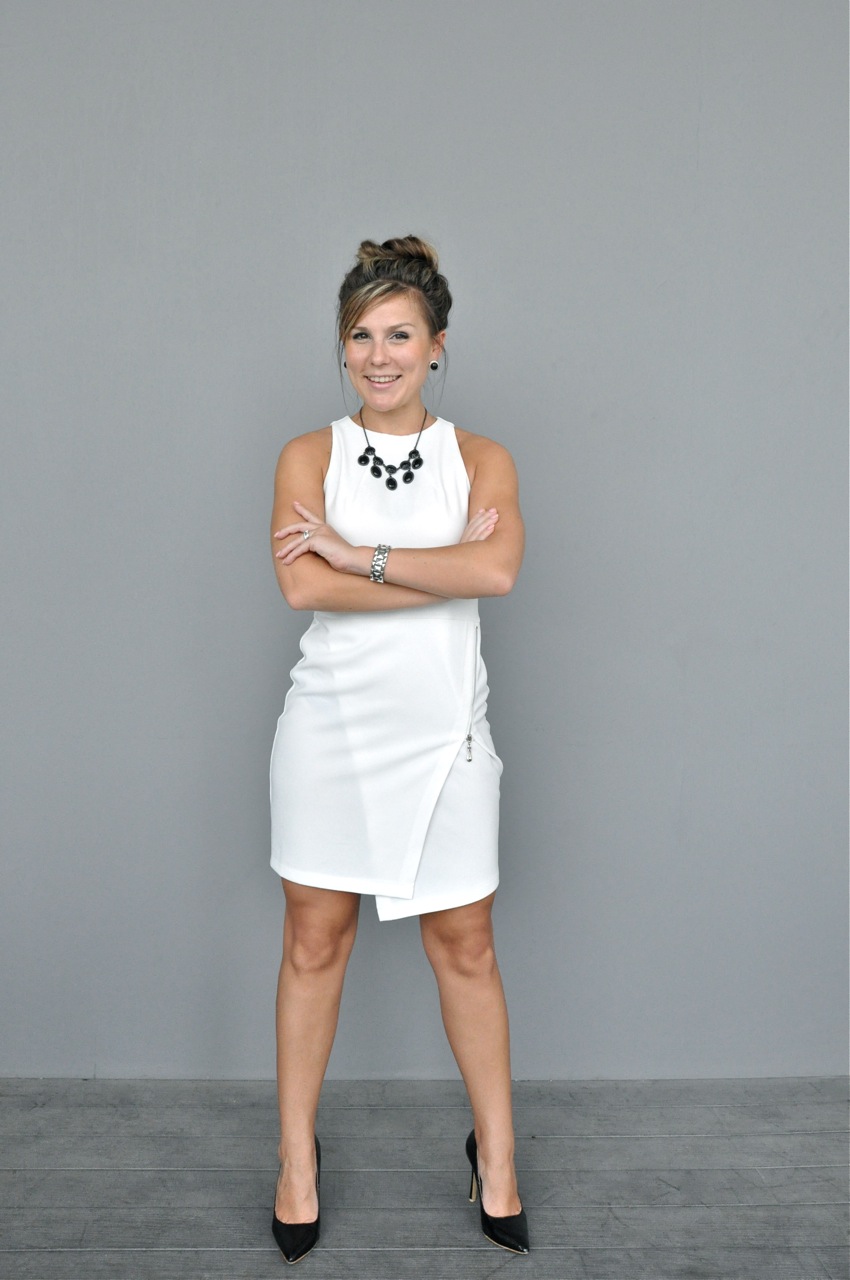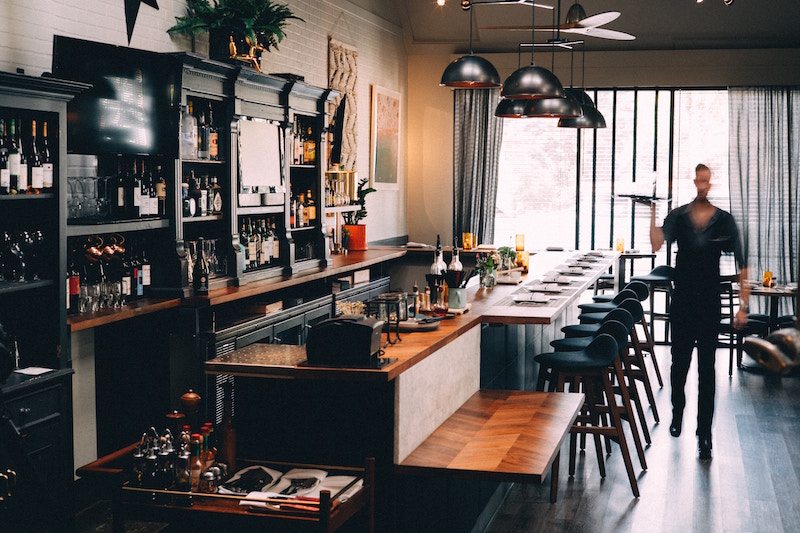Who's familiar with the Danish concept - Hygge; Swedish way of moderation - Lagom; how about this Finnish concept - Sisu? We speak to Anna Ratala, Head of Slush Singapore on this guiding principle to many Finns. This trait of grit & tenacity not only shaped the fate of the nation during the Winter War; it also continues to penetrate the locals' daily lives.
Of course, we had to ask Anna for some tips to discovering this inner strength and mindset. Read on for a mind trick she shares - a simple shift in perspectives for success vs. failure.
What is Sisu and how do you embrace it in your life?
Interestingly, there is no English equivalent to the word; but, every Finn knows what it is. To me, it means courage – to not give up and to keep pushing and trying, even (and especially) when the odds are against you.
I’ve had many moments in my life when I’ve had to find a lot of sisu in myself. I’ve lived in 5 different countries. I've started from scratch when we moved to Singapore 7 years ago, having never even visited Asia before and having no job. I've quit a well-paying position to become an entrepreneur. I've started Slush Singapore with no team, no money and 101 days until the event.
It’s sisu that has gotten me to push my limits, work harder and keep my eyes on the goal.

What are some actionable ways you've used to cultivate your sisu?
The best way to cultivate sisu is to choose to do things that challenge you. Easy stuff is easy. But if you want to achieve things in life, you need challenges, you need the rocky paths.
Whenever I choose to do something I know will be tough, I know I will grow, learn and come out of the experience as a better version of myself, full of sisu and determination. And it is a choice – you can definitely live your life taking the easy way out. But it will bring you nowhere. Those who actively choose the more challenging paths are rewarded at the end.
"Most people let their battles define them, and see failure as an indication of who they are." What are your thoughts on this statement?
Unfortunately, that’s probably true for a lot of people. But if you really want to succeed in life (on whatever metric you measure your success with) you need to look at failure as an ingredient of success.
I recently listened to Ray Dalio, a legendary investor, who said that in his mind, he always wins: If he succeeds, then it’s a win; if he fails, then he learns something and that’s a win, too.
I love this mindset. Too often, we let the society define our success – but if you really want to live a happy life and achieve your own goals, the only person defining your success should be you.
You may fail at something, but if your metric of success was to dare to try, then you have succeeded. In the end, it’s all just a mind trick!
What are some tips you can share with women who are struggling to step out of their comfort zone?
Take the first step. If you want to start a business, the first step is to do a little research. If you want to quit your miserable job, the first step might be to speak with a headhunter. If you want to get a promotion, ask what’s required for you to get one.
There’s always a first step that’s usually not very big or scary – but it will create a positive momentum and help you take the next one.
Another great thing to remember is that done is better than perfect. Women tend to think that nothing is worth doing unless done perfectly. Do you think Donald Trump believed that when he ran for president? Yup. People care far less than you think.
Finally, ask yourself: What’s the worst that can happen? That you fail. Remember me talking about Ray Dalio earlier? Just like him, think of your failure as a learning experience – and a win, in itself.

What is the biggest challenge you are facing right now?
Prioritizing. When you work in a startup-like environment and you’re always short of resourses, you tend to do a little bit of everything. I’ve done everything from booking F&B to meeting with our top speakers to negotiating partner deals. But the more we grow as an organization, the more I have to choose what I spend my time on – and the more I realize my time is better spent on strategic rather than operational things.
It’s been challenging to let go of certain things because I want to show I’m there with the team, and happy to order coffee or pick-up T-shirts. But the truth is that my time is better spent on looking at the big picture, ensuring that we have a direction, leading the team and making sure we have the right people in place. Me prioritizing these things have made a huge difference in shaping our organization and getting us on the right track.
What values do you live by?
Family. The most important thing in my life. My husband, my parents and brother, my other immediate relatives and my close friends. They are my priority and the only thing that work comes second to.
Hard work and perseverance. I have never been afraid of working hard and I am very aware that it’s the only way to achieve anything in life. I believe that literally anything is possible when you work for it and that’s my greatest source of inspiration. I also believe that the only person you’re responsible for your hard work is, essentially, yourself. I’m not in it for the praise, I’m in it to get shit done.
Honesty. I struggle to remember occasions when I have lied in my life - that’s something that has been cultivated in me since I was a kid. People will always misunderstand things, gossip or just don’t always appreciate what you’re doing. But at the end of the day, I need to be able to look myself in the mirror every night and know that I have been honest to myself and those around me. If I cannot tell the truth, I rather not say anything.
What are some experiences / your upbringing that have shaped your beliefs and made you who you are today?
I come from a mixed family - my mom is Russian and my dad is Finnish (though he grew up in Russia). I was born in Russia and was 6 years old when our family moved to Finland. My brother and I grew up in a loving family but acknowledging the fact that we were tight on money, that we had to work for what we wanted and we weren’t spoiled too much. I never owned a pair of Levi’s jeans and I didn’t go to the movies with friends because those things were expensive.
I learned the value of money at a very young age and was always taught that if I wanted something, I had to earn it myself because nobody else was going to do it for me.
I think my family background, seeing my parents work so hard to adjust to the new life in a new country, has given me a lot of grit and perseverance. Giving up has never been an option. I’ve acknowledged that I have to work harder to achieve certain things because we haven’t had the money or connections to make it easy for me. I’m really thankful that my parents have taught me the importance of hard work and that it would carry us as far as we wanted to go.
Do you see women limited by their own beliefs / traditional gender stereotypes? How does that compare with your experiences in Asia vs. Nordics?
Sadly, yes. It’s getting better, but women are still far too careful, too judgemental towards themselves and too insecure and doubtful about their own capabilities.
I see Finland and the Nordics ahead of Asia when it comes to breaking the gender stereotypes. It starts from small things - for example when you go on a date, it’s perfectly fine for a woman to pay the bill. We don’t expect a man to pay for us, take care of us or make us feel good – we understand we can do it ourselves. In Finland, the waiter would always ask how you’d like to settle the bill vs. in Asia, the bill is automatically taken to the man, which is a small thing but speaks volumes about the gender stereotypes here.
Yet, there is still something universal about women’s self-esteem when it comes to business and leadership. A lack of women in leadership position doesn’t just tell about gender biases (that do exist), but also about women’s own confidence to apply for such positions. It’s ironic that the same qualities that make women great leaders are the same ones that prevent us from moving up in our career. For example, caring about others often turns against us when we care too much and start worrying about what others think about our decisions.
I have started to ask myself a simple question whenever I realize I’m dwelling on something or overthinking a decision: “What would a man do?”. I don’t mean it in a literal sense – but it’s a great reminder that whatever he does, it probably doesn’t involve worrying what others think of him. So neither should I!

Have you ever experienced gender-related challenges?
Most likely yes, but I have to honestly say I cannot recall any such situation. I have to admit I’m pretty tone-deaf when it comes to these things. I don’t want to spend a second of my time or energy thinking about whether I have or haven’t achieved something because I’m a woman.
I acknowledge that women still face gender biases in their career and I strongly feel we need to fight to overcome these biases. But, I also feel like we cannot rely on others to make us feel worthy, to achieve something, to show what we’ve got. If a man doesn’t hire you – find a better boss. If you don’t get paid enough – leave. If someone makes a sexist joke – speak up and let everyone know what a jerk he is. But whatever you do, don’t spend time dwelling on it. That’s not going to help and life is too short for that. If you want to be successful, you’ll meet enough assholes in your life – be it because you’re a woman or despite of it. Keep your eyes on the goal and don’t let anything stop you!
What can women do to step up in the workplace or when representing their own brands?
Quoting billionaire entrepreneur Richard Branson: Screw it, just do it!
There are numerous women’s clubs, events, discussion groups, peer meetings, publications and so on – but if all that inspiration doesn’t create action, it’s good for nothing. Only action creates change.
Another thing I’m a big advocate for is lifting up other women. We can make a huge change by talking good about fellow colleagues, step up for them when we see they are mistreated and encourage them when they are in doubt. And stop using the word female in front of everything – we are entrepreneurs, CEOs, speakers, athletes, leaders. And we are brilliant at what we do.
What do you think are some trends in the tech / startup scene in Southeast Asia vs. Nordics that has changed over the last few years?
Startups have so much more options now than even, say, five years ago. Sources for funding, options for hiring talent, opportunities for outsourcing, options for reaching potential clients via multiple channels, options for doing PR and so on.
I’m especially fascinated by the exponential progress in fundraising. Gone are the days when traditional Venture Capial (VCs) were the kings – today, there are many alternative ways to raise funding, such as crowdfunding platforms, Initial Coin Offering (ICOs) and corporate venturing. These options have, in turn, also made many VCs check their terms and find out ways to go above & beyond to stand out. It’s a fantastic time to be an entrepreneur!
Another clear shift is happening with regards to certain technologies. Artificial Intelligence (AI) is an integral part of any self-respecting (tech) startup and blockchain is powering more and more startup solutions. While there are definitely elements of overheating, I believe the dust will settle and the hype will calm down – but the trend will definitely continue.
When I compare Southeast Asia with Nordics – the two regions I’m very familiar with – I see two clear changes, and interestingly, both regions are moving toward the same direction.
The first is a shift towards more socially conscious, sustainable businesses. This refers to business solutions itself, but also to the ways business is conducted. Transparency, diversity and sustainability have become universal values for many entrepreneurs in Nordics, as well as Southeast Asia.
Another clear shift is happening in the number of women entrepreneurs. It’s been inspiring to see so many women start businesses and especially, go into tech. Here, I see that relatively speaking, Nordics are behind – considering that we’re talking about the most equal countries in the world, the number of women entrepreneurs should be much higher, but I’m happy to see it’s growing as it is in Southeast Asia.
Read more: Getting that mindset to push boundaries - Insights from our live event in Singapore.
Inspired and looking to take action? Say hi and drop us a note at [email protected].

